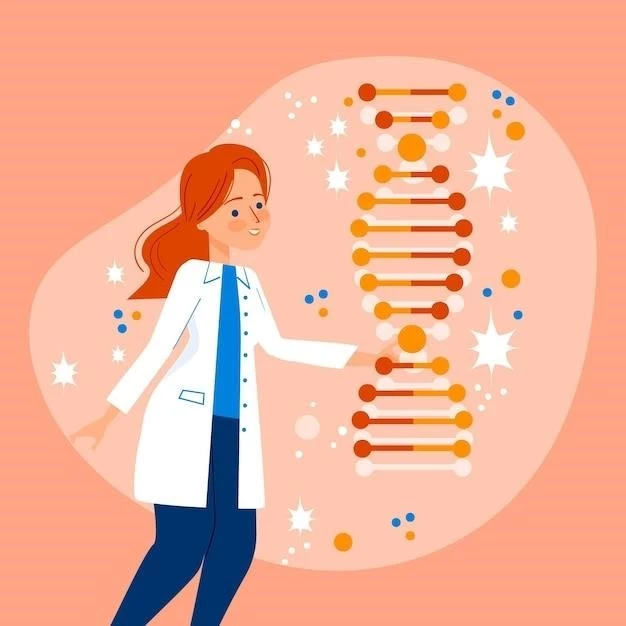It is crucial to grasp how CDK4 gene mutation contributes to melanoma development for effective treatment decisions and management. Stay informed!
Overview of CDK4 Gene Mutation
CDK4 gene mutation plays a significant role in melanoma development, leading to uncontrolled cell growth. Understanding how this mutation affects the cell cycle can aid in developing targeted treatment strategies. Stay informed about the implications of CDK4 gene mutation for your melanoma diagnosis and treatment plan.
- CDK4 mutation contributes to the dysregulation of cell division processes.
- Individuals with CDK4 mutations may have an increased risk of developing melanoma.
- Genetic testing can help identify CDK4 mutations early for personalized treatment approaches.
- Targeted therapies and immunotherapy are common treatment options for CDK4-driven melanoma.
Genetic Testing for CDK4 Mutation
Genetic testing for CDK4 mutation is essential for individuals at risk of melanoma due to CDK4 gene alterations. By identifying these mutations early٫ personalized treatment approaches can be implemented to manage the condition effectively. Consider discussing genetic testing with your healthcare provider if you have a family history of melanoma or other risk factors.
- Genetic testing can confirm the presence of CDK4 mutations in individuals.
- Early detection of CDK4 mutations allows for proactive monitoring and tailored treatment plans.
- Consult with a genetic counselor to understand the implications of CDK4 gene mutations on your health and management options.
- Stay informed about the latest advancements in genetic testing technology to make informed decisions about your melanoma risk.

Treatment Options for CDK4-Linked Melanoma
Explore targeted therapies and immunotherapy for effective management of CDK4-linked melanoma. Consult with healthcare providers to determine the most suitable treatment plan.
Targeted Therapies
Targeted therapies offer a precise approach to treating CDK4-linked melanoma by focusing on specific genetic alterations. These therapies work by targeting the abnormal proteins produced by the CDK4 mutation, inhibiting their function and slowing down tumor growth. Discuss targeted therapy options with your oncologist to determine the most effective treatment plan tailored to your genetic profile.
- Targeted therapies aim to block the activity of mutated CDK4 gene products to impede cancer progression.
- These treatments are designed to specifically target cancer cells while minimizing damage to normal cells.
- Monitoring for potential side effects and discussing any concerns with your healthcare team is crucial during targeted therapy.
- Stay informed about advancements in targeted therapy options for CDK4-linked melanoma to make well-informed treatment decisions.
Immunotherapy
Immunotherapy harnesses the body’s immune system to fight CDK4-linked melanoma by enhancing the immune response against cancer cells. This approach can be particularly effective for patients with specific genetic mutations like CDK4. Consult with your oncologist to explore immunotherapy options tailored to target your melanoma and discuss potential benefits and side effects.
- Immunotherapy helps the immune system recognize and destroy cancer cells, including those driven by CDK4 mutations.
- Discuss with your healthcare team about the different types of immunotherapy available for CDK4-linked melanoma.
- Regular monitoring and communication with your medical providers are essential during immunotherapy to manage any side effects.
- Stay informed about advancements in immunotherapy research to understand how it can benefit your treatment plan for CDK4-related melanoma.
Latest Research on CDK4 and Melanoma Connection
Stay updated on the evolving research regarding the CDK4 gene mutation’s role in melanoma development for potential innovative treatment strategies. Knowledge is power in the fight against cancer.
Current Studies and Findings
Explore current studies and findings on the link between CDK4 gene mutation and melanoma to stay informed about the latest advancements in research; Keeping abreast of new discoveries can help you understand emerging treatment options and potential breakthroughs in managing CDK4-related melanoma. Consult reputable sources for updated information and discuss any new developments with your healthcare team.
- Researchers are investigating the impact of CDK4 mutations on melanoma progression and treatment response.
- Ongoing studies aim to uncover novel therapies that target CDK4-altered pathways for more effective treatment outcomes.
- Stay informed about clinical trials evaluating the efficacy of new treatments in CDK4-associated melanoma.
- Discuss the implications of recent research findings with your healthcare provider to tailor your treatment plan accordingly.
Promising Developments in Treatment
Stay hopeful about emerging treatment options for CDK4-related melanoma as research continuously reveals promising developments. New therapies tailored to target specific gene mutations, like CDK4, offer potential advancements in managing the disease. Keep abreast of the latest breakthroughs in treatment approaches and discuss these innovations with your healthcare provider to determine the best course of action for your condition.
- Researchers are exploring innovative treatment modalities that aim to address the unique genetic characteristics of CDK4-driven melanoma.
- Promising developments include personalized medicine approaches that leverage genetic insights for more effective therapies.
- Engage in discussions with your healthcare team to learn about cutting-edge treatments on the horizon for CDK4-related melanoma.
- Stay informed about clinical trials testing new treatments targeting CDK4 gene mutations for improved outcomes.
Prevention Strategies for CDK4-Positive Melanoma
Protect your skin and reduce melanoma risk by following sun-safe practices consistently. Learn about preventive measures to safeguard against CDK4-positive melanoma development.
Sun Protection and Risk Reduction
Reduce your risk of CDK4-positive melanoma by practicing effective sun protection methods. Shield your skin from harmful UV rays to lower the chances of melanoma development linked to CDK4 gene mutations. Make sun safety a priority in your daily routine to safeguard your skin health.
- Wear sunscreen with a high SPF rating and reapply regularly, especially when outdoors.
- Seek shade during peak sun hours to minimize UV exposure and reduce skin damage.
- Cover up with protective clothing, hats, and sunglasses to shield your skin and eyes from the sun.
- Avoid tanning beds and artificial UV radiation sources that can increase melanoma risk.
Clinical Trials for CDK4-Associated Melanoma
Explore participation in clinical trials for cutting-edge treatments targeting CDK4 mutations in melanoma. Stay informed about research advancements and potential new therapies through clinical trials.
Overview of Clinical Trials
Participating in clinical trials can offer access to novel treatments and contribute to advancing the understanding of CDK4-associated melanoma. Learn more about ongoing trials, their potential benefits, and how you can be involved in shaping the future of melanoma treatment.
- Clinical trials evaluate new therapies specifically targeting CDK4 gene mutations for improved outcomes.
- Patient participation in trials can help researchers assess treatment efficacy and safety in real-world scenarios.
- Discuss with your healthcare provider about potential clinical trial options that align with your melanoma diagnosis.
- Stay informed about the latest developments in clinical trials for CDK4-related melanoma to make informed decisions about your treatment journey.
Prognosis and Survival Rates of CDK4-Driven Melanoma
Understand the prognosis and survival rates associated with CDK4-driven melanoma to make informed decisions about your treatment and care. Stay informed about the latest research on outcomes.
Understanding Prognosis
Grasping the prognosis of CDK4-driven melanoma is crucial for planning your treatment journey. By understanding the potential outcomes and survival rates associated with this genetic mutation, you can work with your healthcare team to develop a personalized care plan tailored to your specific needs.
- Evaluate the prognosis based on factors such as tumor stage, genetic mutations, and overall health status.
- Survival rates for CDK4-driven melanoma may vary, highlighting the importance of early detection and timely intervention.
- Engage in open discussions with your healthcare provider to interpret the prognosis and explore treatment options matched to your prognosis.
- Stay proactive in monitoring your condition and seek support from healthcare professionals and loved ones to navigate the journey ahead.
